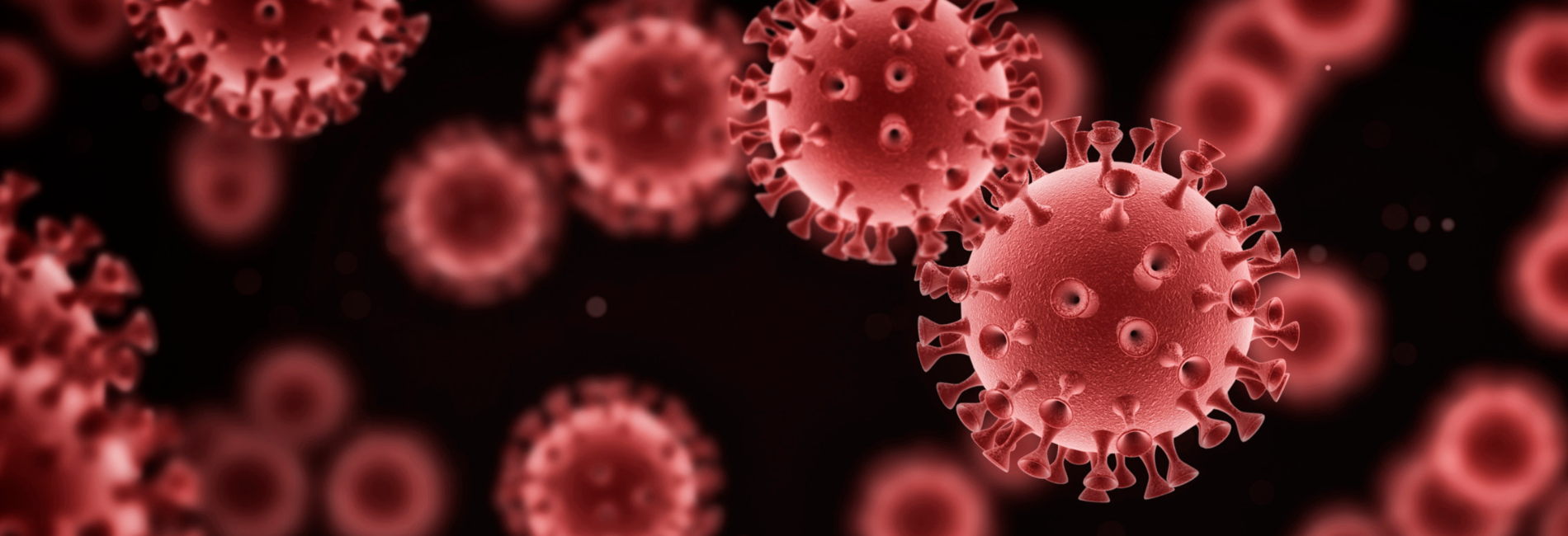Epstein-Barr Virus (EBV) is one of the most common viral infections, with most people encountering it at some point in their lives. Primarily known for causing infectious mononucleosis (commonly called “mono”), EBV can remain dormant in the body long after the initial infection. Unfortunately, it often reactivates, leading to persistent symptoms or immune system challenges.
If you or a loved one are wondering, what kills Epstein-Barr Virus?, you’re not alone. While it’s true that EBV is remarkably resilient and cannot be eradicated entirely by conventional antivirals or antibiotics, there are natural ways to support the immune system to manage EBV, suppress its activity, and promote overall recovery.
This article delves into how Epstein-Barr Virus behaves, why it’s so difficult to completely “kill,” and the natural strategies that may help manage EBV symptoms and support the body’s healing process.
Understanding Epstein-Barr Virus: Why Is It So Hard to Kill?
Epstein-Barr Virus (EBV) is a member of the herpesvirus family, which means it has the ability to remain dormant or latent within the body for long periods of time. Once the initial infection occurs (usually during childhood or adolescence), the virus hides within B cells, a type of immune cell. These cells allow the virus to reactivate later, often when the immune system is weakened.
Because EBV integrates itself into your immune cells, there is currently no medication or natural compound that completely eradicates the virus from the body. Instead, the goal is to support the immune system in controlling EBV’s activity and reducing flare-ups.
Can Antiviral Medications Kill Epstein-Barr Virus?
Currently, there are no FDA-approved antiviral medications specifically designed to kill Epstein-Barr Virus. Some antiviral drugs that treat other herpesviruses, such as acyclovir or valacyclovir, may reduce viral replication temporarily, but they do not eliminate the virus from its latent state.
This limitation makes natural immune support essential when it comes to managing EBV infections and preventing complications. By enhancing immune function, natural approaches can help suppress the activity of EBV and reduce symptoms.
Natural Strategies That Help Control and Suppress Epstein-Barr Virus
The following natural strategies can support your immune system and help manage EBV infection. Though there is no "magic bullet" for eliminating the virus, these methods can help keep it under control.
1. Support Immune Function with Nutrient-Rich Foods
A robust immune system is your first line of defense against EBV reactivation and associated symptoms. Eating a diet rich in antioxidants, vitamins, and minerals can enhance immune function and support your body’s ability to control EBV.
Key nutrients for immune health include:
-
Vitamin C: Found in citrus fruits, berries, and leafy greens, vitamin C helps boost white blood cell activity.
-
Vitamin D: Crucial for immune regulation, vitamin D can be optimized through safe sun exposure or supplementation.
-
Zinc: This mineral is essential for immune cell function. Zinc-rich foods include nuts, seeds, and legumes.
-
B Vitamins: Vital for energy metabolism and immune function, these can be found in whole grains, eggs, and leafy vegetables.
Focusing on a whole-food, nutrient-dense diet can help your body suppress EBV and reduce symptoms naturally.
2. Herbal Antivirals That May Help Epstein-Barr Virus
Several herbs have shown antiviral properties in laboratory studies, including against EBV. While human clinical evidence remains limited, these herbs are commonly used in natural health to support viral infections:
-
Elderberry (Sambucus nigra): Known for its antiviral and immune-stimulating effects, elderberry extract may help inhibit EBV replication.
-
Licorice Root (Glycyrrhiza glabra): Contains glycyrrhizin, which exhibits antiviral activity and may help reduce inflammation in the body.
-
Astragalus (Astragalus membranaceus): This adaptogen boosts immune function and supports the body’s ability to resist infections.
-
Cat’s Claw (Uncaria tomentosa): Supports immune modulation and may help inhibit viral activity.
-
Olive Leaf Extract: Contains compounds like oleuropein that have demonstrated antiviral properties against EBV.
Before incorporating herbal supplements into your routine, always consult with a healthcare professional, especially if you have underlying conditions or take other medications.
3. Manage Stress to Protect Immune Health
Stress has a profound impact on the immune system, and chronic stress can trigger EBV reactivation or worsen symptoms. Managing stress is crucial for protecting immune health and supporting the body’s ability to suppress EBV activity.
Effective stress management techniques include:
-
Meditation and mindfulness
-
Gentle yoga and tai chi
-
Deep breathing exercises
-
Adequate sleep and rest
-
Spending time in nature
By incorporating stress-relieving practices into your routine, you can support your immune system’s ability to maintain balance and control EBV.
4. Get Quality Sleep for Immune Recovery
Sleep is essential for immune regulation and healing. During deep sleep, your body produces cytokines and other molecules that are crucial in fighting infections.
To optimize sleep:
-
Aim for 7-9 hours of sleep each night.
-
Establish a relaxing bedtime routine.
-
Limit screen time before bed to reduce blue light exposure.
-
Create a cool, dark sleep environment to promote restful sleep.
Prioritizing quality sleep ensures your immune system is functioning optimally, helping your body better manage EBV reactivation.
5. Exercise Wisely to Boost Immunity
Regular moderate exercise is beneficial for your immune system, but overexertion can backfire and contribute to fatigue or EBV flare-ups. Opt for low-intensity activities like:
-
Walking
-
Swimming
-
Light strength training
These activities help strengthen the immune system without putting undue stress on the body. Always listen to your body and adjust your exercise routine based on how you feel.
6. Consider Antiviral Nutraceuticals
Some natural compounds have demonstrated antiviral properties in scientific studies and may help support EBV management:
-
N-Acetylcysteine (NAC): Supports detoxification and may help reduce viral load.
-
Quercetin: A flavonoid with antioxidant and antiviral effects, quercetin may help support the immune system and reduce EBV activity.
-
Propolis: A bee-derived resin known for its antimicrobial and immune-boosting properties.
These nutraceuticals, when used under professional guidance, may support immune function and contribute to EBV management.
The Role of Detoxification in Epstein-Barr Virus Recovery
Chronic EBV infection can contribute to inflammation and toxin buildup in the body. Supporting your body’s natural detox pathways can aid in EBV recovery. Focus on these detoxifying habits:
-
Drink plenty of water to support kidney filtration.
-
Consume fiber-rich foods to aid digestion and promote regular bowel movements.
-
Incorporate natural detoxifiers like chlorophyll, dandelion tea, and turmeric to support liver function.
-
Avoid environmental toxins such as cigarette smoke, pesticides, and unnecessary medications.
Supporting detoxification allows your body to recover from the inflammatory effects of EBV and restore balance.
Interactive Graph: Common EBV Symptoms and Natural Remedies
|
EBV Symptoms |
Common Natural Remedies |
|
Fatigue |
Adequate sleep, balanced nutrition |
|
Sore throat |
Licorice root tea, warm saltwater gargle |
|
Swollen lymph nodes |
Elderberry syrup, gentle massage |
|
Fever |
Hydration, rest, cooling herbal teas |
|
Muscle aches |
Gentle stretching, magnesium supplementation |
Frequently Asked Questions About Epstein-Barr Virus
Can Epstein-Barr Virus Be Cured?
While there is no cure that can completely eradicate Epstein-Barr Virus, it can be managed through natural immune support, stress management, and healthy lifestyle changes to suppress symptoms.
How Long Does Epstein-Barr Virus Last?
The acute phase of EBV infection typically lasts 2 to 4 weeks, but symptoms like fatigue may persist for months. In rare cases, chronic active EBV may develop, which requires medical evaluation.
Is Epstein-Barr Virus Contagious?
Yes, EBV is contagious and primarily spreads through saliva, which is why it’s often called the kissing disease.
When to Seek Medical Help for Epstein-Barr Virus
If your symptoms persist, worsen, or you experience complications such as difficulty swallowing, severe abdominal pain, or unexplained weight loss, consult with a healthcare provider.
Conclusion: Supporting Your Body Against Epstein-Barr Virus
While there is no single solution that kills Epstein-Barr Virus outright, you can help support your body’s natural defenses against EBV through immune-boosting strategies. By prioritizing a nutrient-rich diet, herbal antivirals, stress management, quality sleep, and detoxification, you can help keep EBV symptoms under control and promote long-term recovery.
By combining these natural tools, you support your body’s resilience, allowing it to thrive even with the presence of Epstein-Barr Virus. Always consult with a healthcare professional to tailor the best approach for your unique needs.
Medical Disclaimer:
The information provided in this article is for general informational purposes only and is not intended as medical advice. The content should not be used to diagnose, treat, or cure any medical condition. Always consult with a qualified healthcare provider before making any changes to your diet, supplement regimen, or lifestyle, especially if you have a pre-existing health condition or are taking medication. The strategies and recommendations mentioned are not intended to replace professional medical care or treatment.



